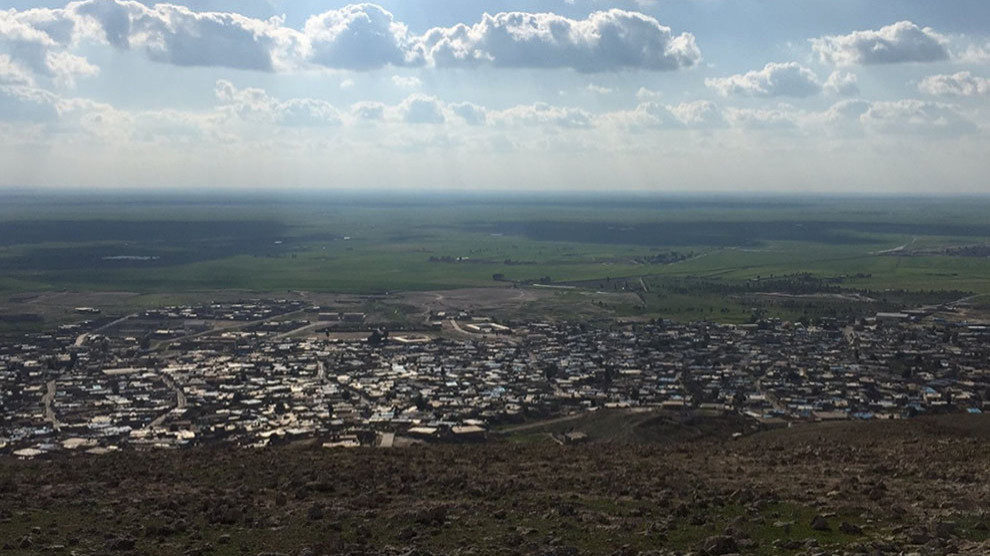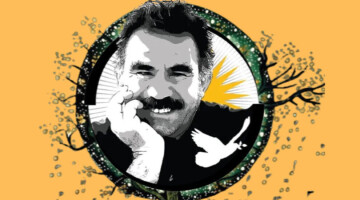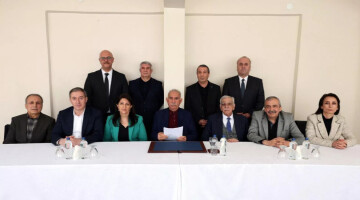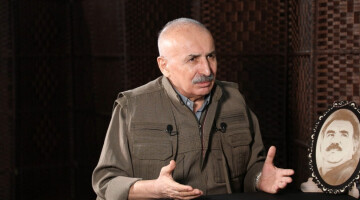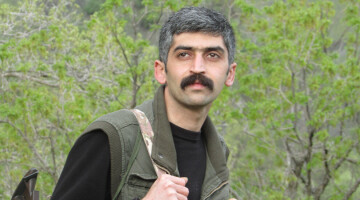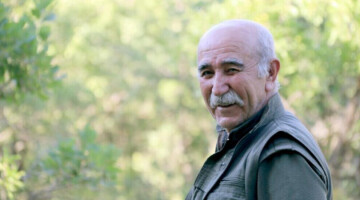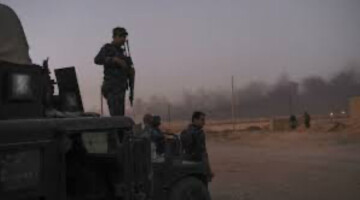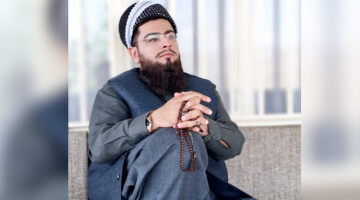The corona infections in South Kurdistan are causing concern in the Maxmur refugee camp. Not least since the first victim in the autonomous region died three weeks ago as a result of Covid-19. Should the virus reach the camp in the south-west of Hewlêr (Erbil), thousands of people will be left defenceless. Due to a comprehensive embargo, the approximately twelve thousand inhabitants have been sealed off from the outside world since last July. Medical care has not been available for some time, and food and drinking water are now also in short supply. Appropriate preventive and protective measures to prevent the introduction of the pandemic are only carried out to a moderate extent due to a lack of protective equipment, cleaning agents and disinfectants. Deliveries by human rights organisations - humanitarian aid and life-saving medical supplies - to address the shortages in the Maxmur health system during the Covid-19 pandemic will not be allowed through. Likewise, no one is allowed to leave the camp.
Officially under UN protection
Maxmur is officially under the protection and control of the UNHCR. However, the lifting of the embargo imposed by the South Kurdish ruling party KDP after the fatal attack on a leading functionary of the Turkish secret service MIT in Hewlêr on 17 July 2019 has not yet been achieved. The residents are subject to collective punishment, even though there is no proof or evidence of involvement of one or more people from Maxmur in the killing of the Turkish diplomat.
Maxmur houses people who were forced to leave their villages in the Botan region of North Kurdistan in the 1990s due to the repression of the Turkish state. After an odyssey of several years and stays in different camps they settled at the edge of the desert in 1998. Today, Maxmur is a small town, which despite poverty, constant threats and attacks, is a place of peace and collective self-determination.
ANF talked to Neda Muhammed Ahmed from the Foreign Relations Committee in Maxmur about the current situation on the ground. Ahmed warns: "If the coronavirus reaches and spreads here, there is a threat of humanitarian disaster." Many elderly people over 60 years of age and chronically ill people live in the camp. They therefore belong to the Corona risk group.

Psychological consequences of sanctions are worsening
"For nine months we have been working intensively to lift the embargo - but so far without success. We have held numerous diplomatic talks with representatives of political parties and civil society organizations. We even met the governor of Hewlêr twice. But on both occasions, we were unable to find out the legal background to the blockade of Maxmur, nor were we able to get it lifted. The social and psychological consequences of the sanctions have already been devastating for the people of Maxmur before the outbreak of the Corona epidemic. With the spread of the virus, the effects of the embargo will be even more far-reaching.”
"The residents are deeply unsettled. They were already granted refugee status by the United Nations in the 1990s, but the UNHCR is not providing any help to the camp. We have contacted humanitarian aid agencies and asked for cleaning materials and medicines, but the supplies are not being handed over to us. Human rights organisations and trade unions who wish to see our situation are denied access to the camp. All national and international institutions with which we are in contact, even the UN, agree that the embargo imposed on us is illegal. Human Rights Watch describes it as arbitrary and has called on the autonomous government to lift the existing restrictions. Yet nothing is happening," criticises Ahmed.
Dr. Ünver: Stocks of medicines used up
Doctor Muhammed Ünver points out that even the medical staff is forbidden to leave and enter the camp. "The hospital's medical supplies have been used up for some time, but new ones may not be procured. We are trying to protect ourselves with limited means from the risk posed by Covid-19. We have convened a crisis council, in which all of facilities and institutions of Maxmur are involved in the decisions. We have set up a temporary quarantine station where we will be accommodating people who are allowed to leave and/or enter the camp with a special permit for 14 days. At the moment about 70 people are being isolated there, they have not shown any symptoms so far."

Ünver criticizes that the measures taken in the autonomous region of Kurdistan against the spread of the Corona pandemic do not take the Maxmur Camp into account. "We are simply not taken into consideration as if we did not exist at all. Against the background of the Corona pandemic, the embargo takes on a new dimension. There is a lack of all the necessary resources, especially life-sustaining medical devices and disinfectants. We can't even get commercial cleaning products."
Appeal to the KDP government and humanitarian agencies
The physician demands the immediate lifting of the blockade on Maxmur and the delivery of medicines. There is a threat of an uncontrollable outbreak of the coronavirus with dramatic consequences, which cannot be managed without help. "Therefore, the embargo must be ended. We call on international aid organisations and all those who work for human rights to deliver humanitarian and medical aid to Maxmur camp. Without the support we need now, we will not be able to fight the coronavirus."
RELATED NEWS:

